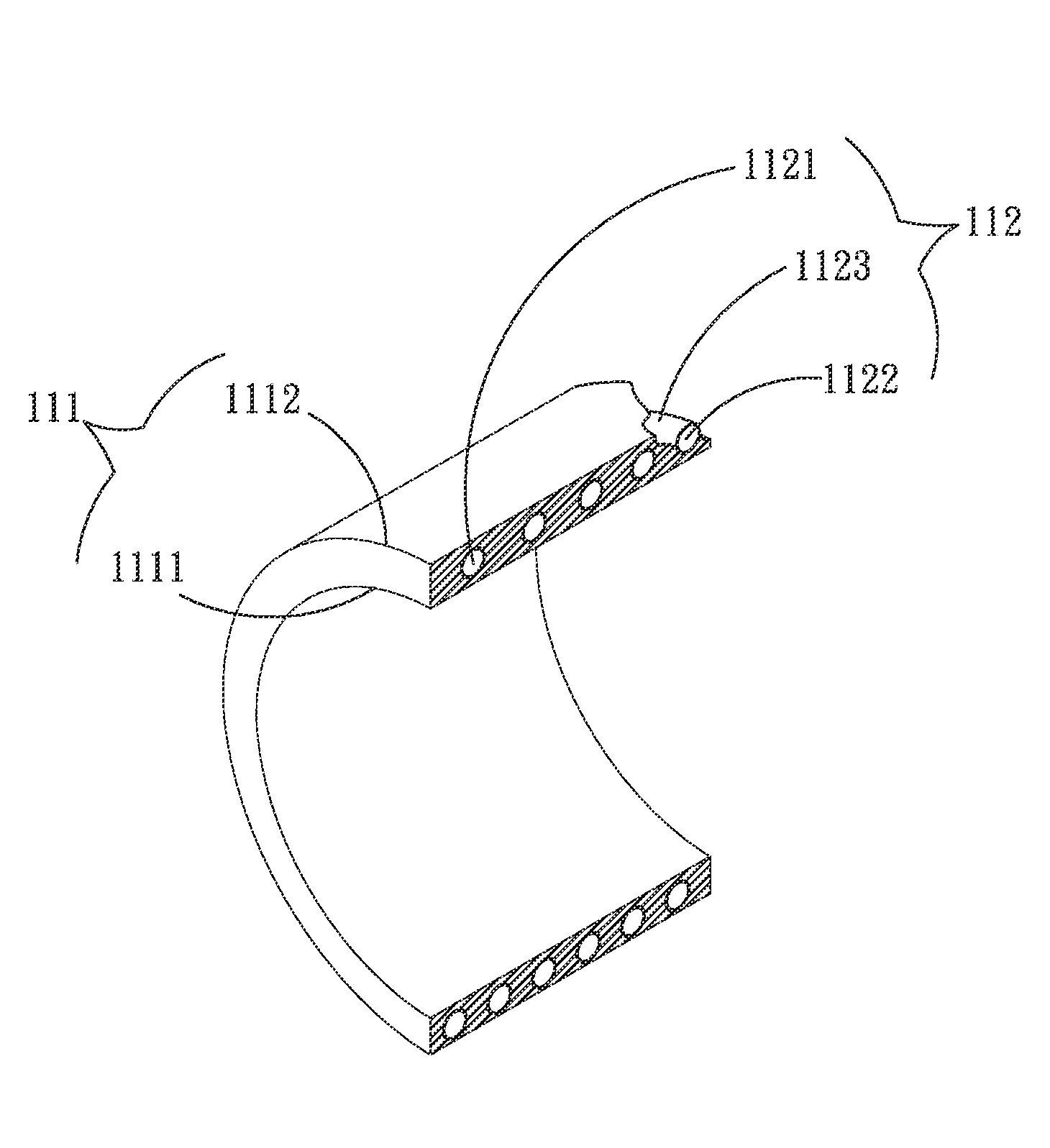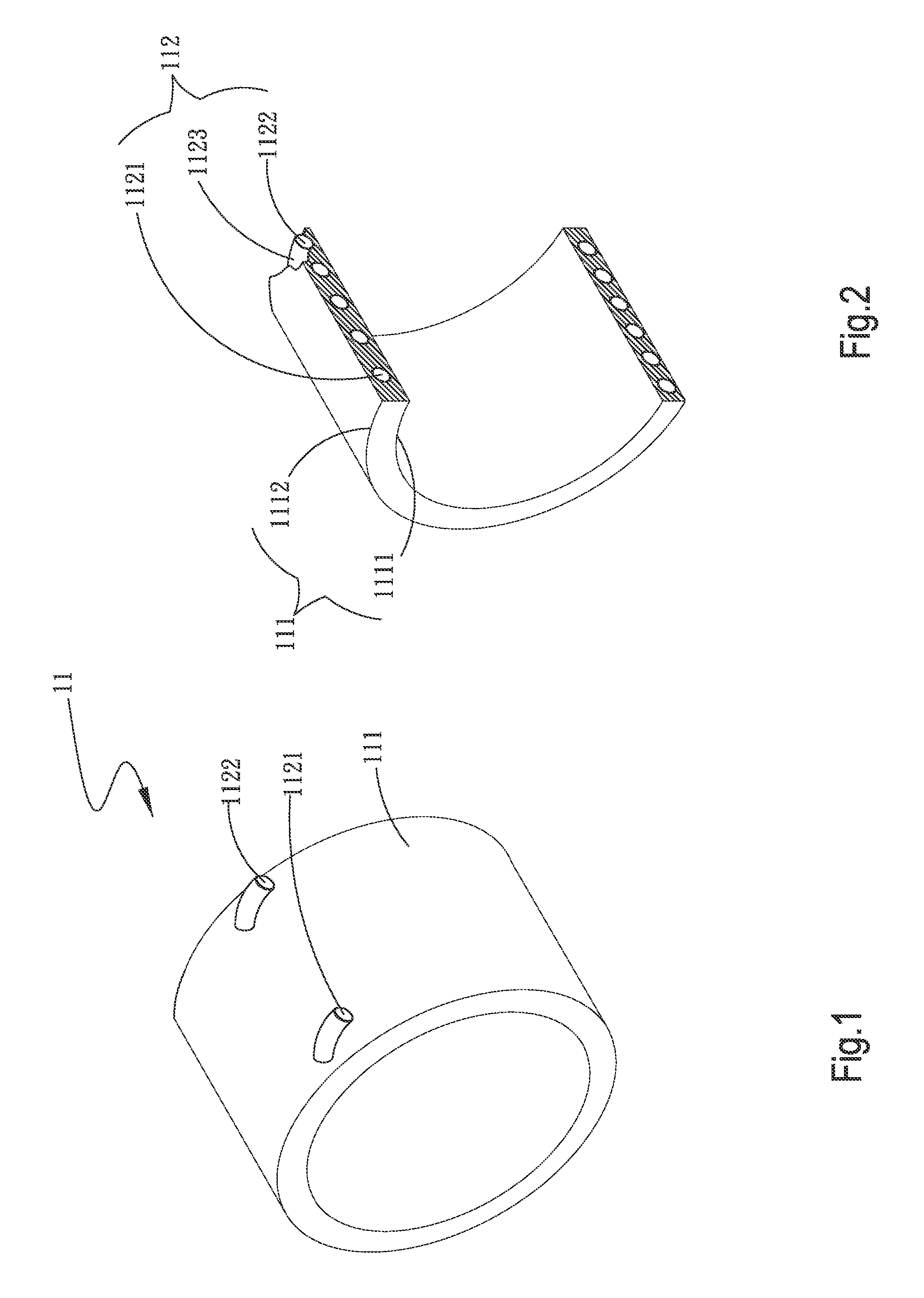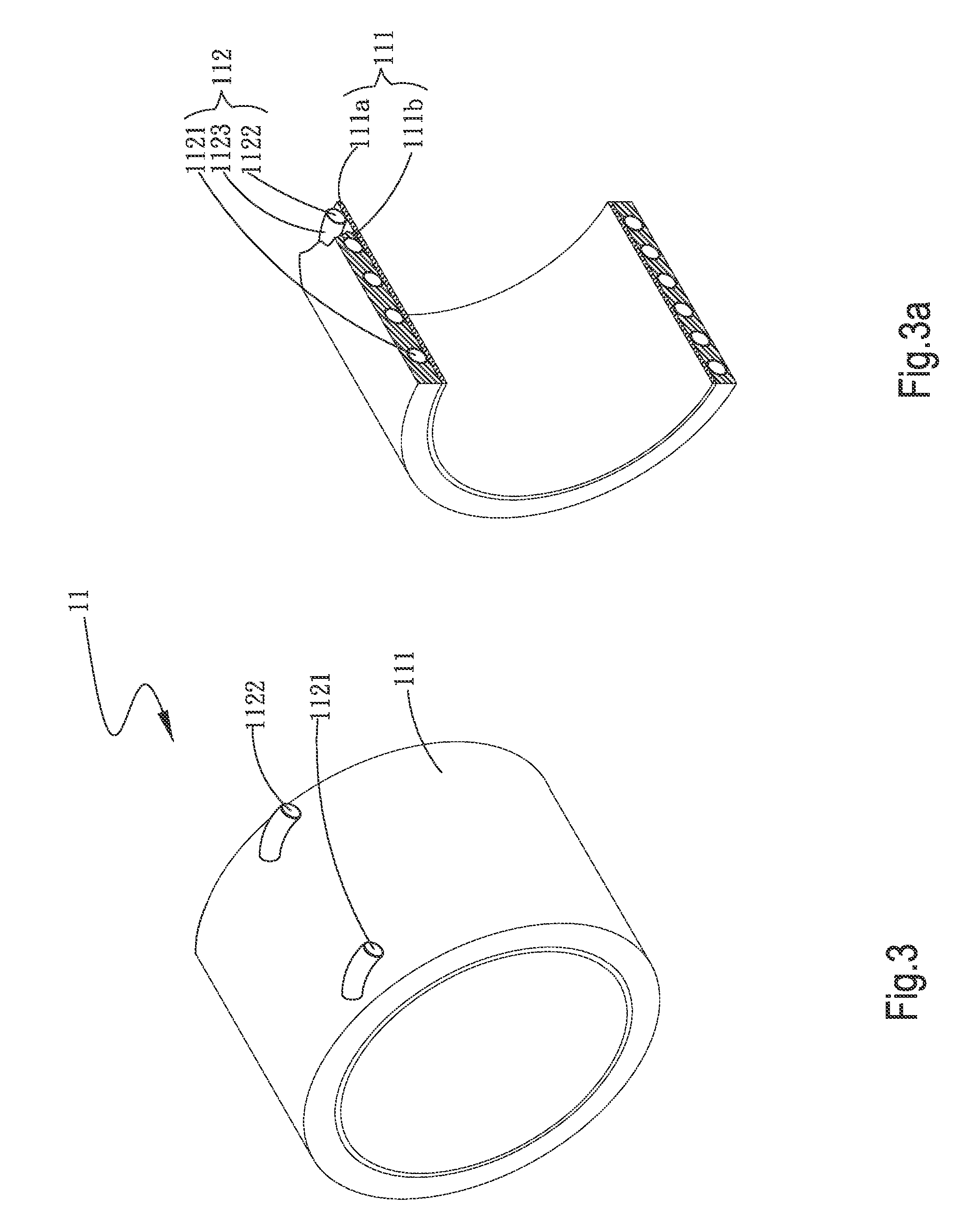Motor water-cooling structure and manufacturing method thereof
a technology for water cooling structures and motors, applied in the direction of rotors, lighting and heating apparatus, foundation moulding apparatus, etc., can solve the problems of air cooling having only limited effect in removing the produced heat from the motor, adverse influence on the working efficiency of the motor, and motor burnout, so as to reduce material, labor and time costs, and avoid the risk of water leakage , the effect of saving manufacturing costs
- Summary
- Abstract
- Description
- Claims
- Application Information
AI Technical Summary
Benefits of technology
Problems solved by technology
Method used
Image
Examples
first embodiment
[0043]In a first step S1 according to the manufacturing method, a mold having a mold cavity and a tube are provided.
[0044]More specifically, as can be seen from FIGS. 6 and 7, a mold 2 having a mold cavity 21 is provided. The mold cavity 21 is dimensioned corresponding to a motor case that is to be formed, such as the motor case 11 shown in FIGS. 1 and 2. And, a tube, such as the tube 112 shown in FIGS. 1 and 2, is also provided.
[0045]Then, in a second step S2, the tube is positioned in the mold cavity of the mold, and a motor case is formed by pour molding to embed the tube therein.
[0046]More specifically, as can be seen from FIGS. 6 and 7, the tube 112 is positioned in the mold cavity 21 of the mold 2, and a motor case, e.g. the motor case 11, is formed by injection molding a plastic material or a metal material in the mold 2, so that the tube 112 is embedded in the motor case (e.g. the motor case 11) to serve as a flow passage in the molded motor case 11.
[0047]FIG. 5 also shows t...
third embodiment
[0052]In a first step X1 according to the manufacturing method, a mold having a mold cavity, a first motor case, and a tube are provided.
[0053]More specifically, as can be seen from FIGS. 11 and 12, a mold 2 having a mold cavity 21 is provided. And, a first motor case, such as the first part 111a shown in FIGS. 3 and 3a, and a tube, such as the tube 112 shown in FIGS. 3 and 3a, are also provided.
[0054]Then, in a second step X2, the tube is wound around an outer side of the first motor case, and the first motor case with the tube wound therearound is positioned in the mold cavity of the mold; and a second motor case is formed on an outer side of the first motor case to cover the first motor case and the tube, so that the second motor case, the first motor case and the tube form an integral body.
[0055]More specifically, as can be seen from FIGS. 11 and 12, the tube 112 is wound around the outer side of the first motor case (e.g. the first part 111a), and the first motor case with the ...
fifth embodiment
[0061]In a first step Y1 according to the manufacturing method, a mold having a mold cavity, a first motor case having a groove provided on an outer side thereof, and a tube are provided.
[0062]More specifically, as can be seen from FIGS. 16 and 17, a mold 2 having a mold cavity 21 is provided. And, a first motor case, such as the first part 111a shown in FIGS. 4 and 4a, having a groove (e.g. the groove 111c) provided on an outer side thereof, and a tube, such as the tube 112 shown in FIGS. 4 and 4a, are also provided.
[0063]Then, in a second step Y2, the tube is set in the groove on the outer side of the first motor case, and the first motor case with the tube set in the groove is positioned in the mold cavity of the mold; and a second motor case is formed on an outer side of the first motor case to cover the first motor case and the tube, so that the second motor case, the first motor case and the tube form an integral body.
[0064]More specifically, as can be seen from FIGS. 16 and 1...
PUM
 Login to View More
Login to View More Abstract
Description
Claims
Application Information
 Login to View More
Login to View More - R&D
- Intellectual Property
- Life Sciences
- Materials
- Tech Scout
- Unparalleled Data Quality
- Higher Quality Content
- 60% Fewer Hallucinations
Browse by: Latest US Patents, China's latest patents, Technical Efficacy Thesaurus, Application Domain, Technology Topic, Popular Technical Reports.
© 2025 PatSnap. All rights reserved.Legal|Privacy policy|Modern Slavery Act Transparency Statement|Sitemap|About US| Contact US: help@patsnap.com



